Russians keep turning up dead all over the world
A helicopter pilot who defected to Ukraine is the latest obvious assassination, but a range of businessmen, bureaucrats and political figures have also suffered suspicious deaths since the invasion.
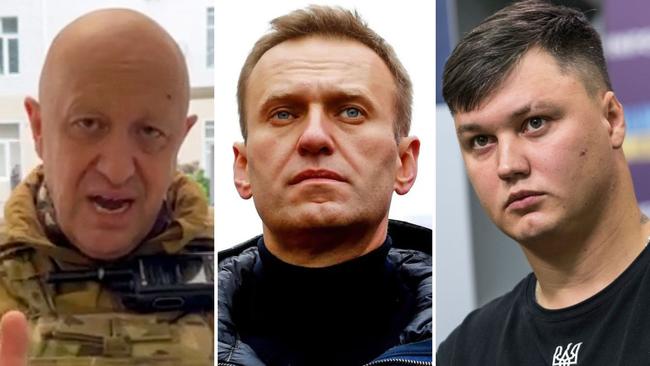
On a Tuesday afternoon last month, Maxim Kuzminov drove up to his new condo overlooking a palm-lined Spanish beach, unaware that an assassin was waiting for him by the parking garage.
Local police stationed less than 500 feet away needed only minutes to respond, but witnesses said it was too late for the former Russian helicopter pilot. The killer had vanished, driving out over the 28-year-old victim’s bullet-ridden body. A medic who sliced through his shirt with bandage shears noted the accuracy of the five small-caliber shots, one directly piercing his heart.
Six months earlier, Kuzminov, a native of a town near Russia’s North Korean border, had defected to Ukraine, his Mi-8 attack helicopter taking small-arms fire as he flew barely 20 feet above the ground. After turning over the gunship, he collected a $500,000 reward and encouraged his countrymen to follow his example.
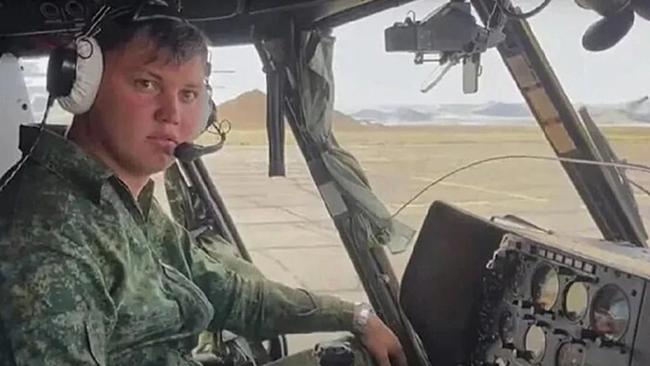
“When all this opens up before you, your views will fundamentally change,” he said in an interview filmed and posted on YouTube by Ukraine’s Defense Ministry. “You’ll simply discover a world of colours.” Now Kuzminov — gunned down in Villajoyosa, a coastal resort that translates as “Joyful Town” — has become the latest name on a lengthening list of unsolved deaths of Russians who soured on Vladimir Putin’s invasion of Ukraine. Spain hasn’t identified a suspect, although investigators believe the murder was ordered by the Kremlin, an official involved in the investigation said.
Moscow hasn’t denied killing the pilot. “This traitor and criminal became a moral corpse at the very moment when he planned his dirty and terrible crime,” Sergey Naryshkin, Russia’s foreign intelligence chief, told its state news agency TASS.
Since the invasion of Ukraine, prominent Russians have died in unusual circumstances on three continents. Some were thought to harbour politically subversive ideas, while others may have been caught up in run-of-the-mill criminal warfare. Some may have actually died of natural causes. But there are enough of them that Wikipedia publishes a running list, at 51 names, entitled “Suspicious deaths of Russian business people (2022 —2024).” Businessmen have been found hanged in London and drowned in Puerto Rico.
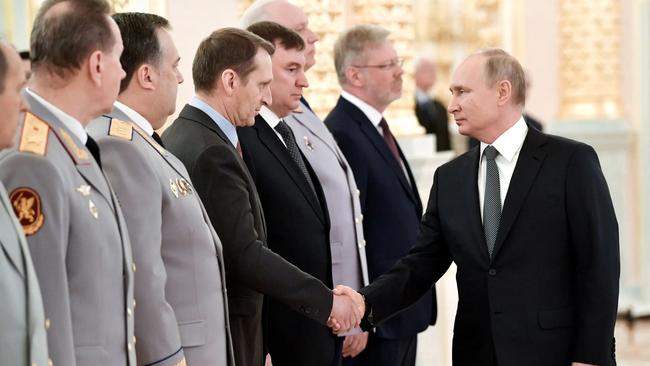
A ruling-party boss fell from the roof of an Indian hotel and a 46-year-old deputy science minister died of an unexplained illness on a return flight from Cuba. Spanish police are still investigating the 2022 deaths of Sergey Protosenya, the former deputy chairman at gas producer Novatek JSC, and his wife and daughter in their home near Barcelona.
Last month, Russian independent media reported that the 35-year old son of Igor Sechin, Putin’s confidante and chief executive of oil giant Rosneft, died at his Moscow luxury apartment complex, known as “Putin’s Friend’s House.” There are no obvious Kremlin fingerprints on these deaths. Not so for another cohort, murdered in spectacular operations planned like theatre productions scripted for maximum public impact. Two months after launching an aborted mutiny, the rogue commander of the Wagner mercenary group, Yevgeny Prigozhin, was blown up at 28,000 feet. His jet crashed into a patch of meadow about 40 miles from Putin’s lakeside residence.
Opposition leader Alexei Navalny was poisoned with the easily detectable nerve agent Novichok in 2020, then died suddenly in an Arctic prison colony last month, just as a deal to free him was coming together. The Kremlin has said the cause of his death is one for medical authorities to establish. Few in the West buy that. “Make no mistake. Putin is responsible for Navalny’s death,” President Biden told reporters last month.
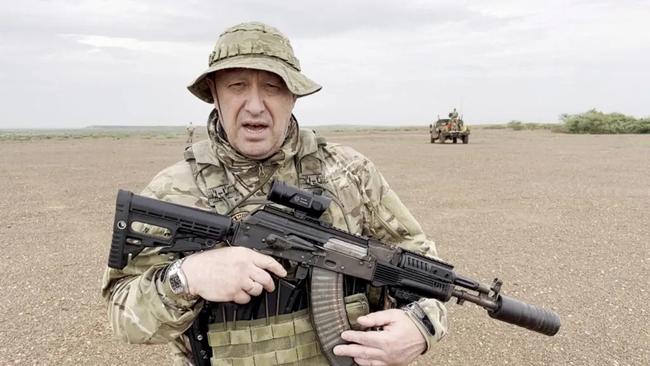
The mafia-style assassination of Kuzminov fits into another hidden undercurrent of the new spy war between Russia and the West. Since Putin’s invasion, Ukraine and its Western allies have ratcheted up attempts to hollow out the Russian state and military by attracting a stream of defectors they hope could become a torrent. The Kremlin, in turn, has tried to hunt down its turncoats, one after the next, to deter more losses through the morbid power of example.
In Ukraine, military intelligence set up a 24-hour “I Want to Live” hotline for Russian soldiers who wished to drop their arms and cross over. More than 260 have deserted ranks through it, while another 26,000 have dialled in, and daily calls briefly shot up some 70% after Kuzminov went public in September, according to Petro Yatsenko, a spokesman for Ukraine’s prisoners of war department. Those numbers couldn’t be independently verified.
The U.S. Central Intelligence Agency has produced three videos encouraging Russians, especially security officers, to collaborate with Washington; the videos generally attract tens of thousands of views. The agency says it wouldn’t keep making them if they weren’t persuading Russians to step forward.
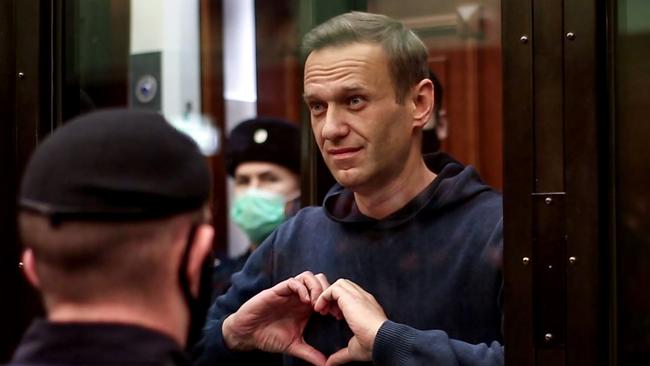
“I invite them to do what others have already done this past 18 months and join hands with us — our door is always open,” British spy chief Richard Moore told a Prague audience in a rare speech last year. “Their secrets will always be safe with us.” France has welcomed Maria Dmitrieva, a doctor who worked for the Federal Security Services, or FSB. Gleb Karakulov, an engineer on Putin’s presidential guard, sneaked away to an undisclosed location via Turkey last year. In a video interview with the Dossier Centre, a London-based investigative group funded by Russian opposition figure Mikhail Khodorkovsky, he said he was responsible for securing the president’s private communications, and that he accompanied Putin on more than 180 trips.
Boris Bondarev was a diplomat serving at Russia’s permanent mission to the United Nations in Geneva before resigning in protest two months after the invasion and seeking refuge in Switzerland.
“My colleagues say, ‘What can we do? If something happens, it happens,’” he said on a video call in front of a plain background. “Russian political thinking is getting simpler and simpler: If there is a problem, let’s just eliminate him.” The operation to lure Kuzminov was meant to be a proof of concept, hatched by Ukraine’s military intelligence agency, the Main Directorate of Intelligence of the Defense Ministry, or HUR, as Ukraine’s counteroffensive struggled and the embattled country reached for new methods. Over months that followed, the ordinary pilot, from a depopulating town thousands of miles from Moscow, became a test case of whether a high-profile defector could stay alive in the comforts of Western Europe, surviving on the money and new identity Ukraine awarded him.
To reconstruct his defection and killing, The Wall Street Journal spoke to the pilot’s neighbours and acquaintances in Spain — including witnesses to his murder — as well as Spanish, European and U.S. police and intelligence officials; and Ukrainians involved in the operation to extract him and his gunship from Russia. Reporters also reviewed Kuzminov’s social-media feeds, now littered with angry posts castigating him for betrayal, and the public remarks he made in the heady days after he escaped to Ukraine.
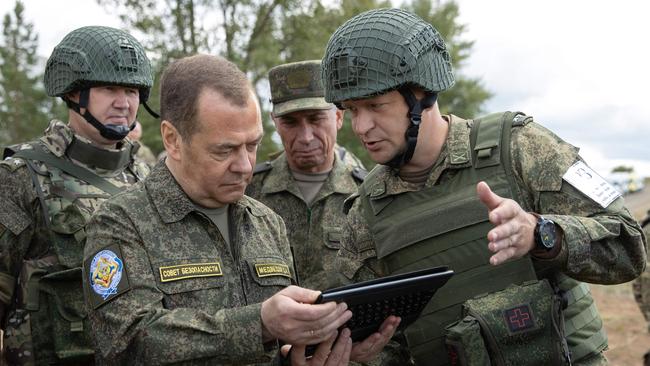
The Kremlin didn’t return requests for comment. When the state news agency asked Dmitry Medvedev, the deputy chairman of the Security Council of Russia, about the murder, he replied: “To a dog, a dog’s death.” ‘Choke on silver’ While Ukraine and its Western backers were designing operations to recruit officers like Kuzminov, Russia’s FSB was bolstering the architecture to stop them.
The agency’s Third Directorate for Military Counterintelligence, or DKVR — charged with preventing military defections — has swelled since the war to become the largest division in the FSB, according to security analysts. Its mission involves spying on one of the world’s largest militaries, down to the unit level, in a country of 11 time zones. Even before the recent expansion, the DVKR was vast: More than 20 of its agents watched over troops at a single small air base housing just six aircraft in the Kaluga region, according to leaked FSB documents from 2012 published on the Russian investigative website Agentura.
This network of domestic and foreign intelligence agencies has regained its confidence and influence after the chaos at the beginning of Ukraine invasion, European security analysts say. Early on, Putin had reportedly placed top FSB leaders under house arrest for badly misjudging the Ukrainian resistance. European capitals ejected some 400 Russian diplomats, many of whom were believed to be spies.
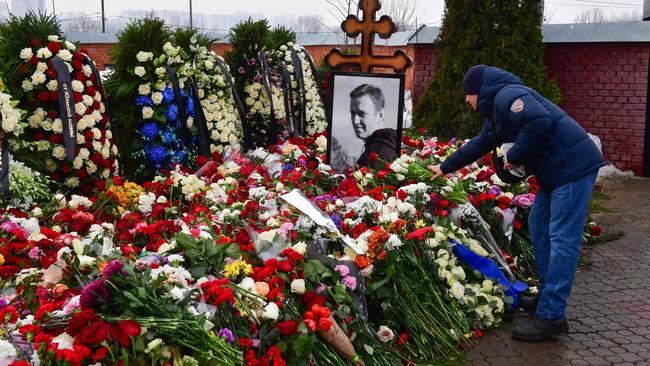
Putin later released the FSB bosses, opting not to purge the ranks. He kept Russia’s borders open, allowing hundreds of thousands of Russians to escape mobilisation by fleeing to Europe, Central Asia and the Caucuses — while undercover intelligence operatives joined them, rebuilding ranks depleted by diplomatic expulsions, European officials say.
The president, a former KGB colonel, has long said he would hunt down Russian defectors: “Whatever they got in return, those thirty pieces of silver, they will choke on them,” he once told a hushed press conference, after a reporter asked him if he’d ever signed an order to liquidate traitors living in exile.
Now, his spy services are becoming more brazen and creative in squashing dissent abroad, U.S. and European intelligence officials say. The boundaries between Russia’s three main intelligence agencies — the FSB, the GRU military intelligence and SVR foreign intelligence — are increasingly blurring, analysts say, making it more difficult to know which is responsible for an operation.
“The services used to be very separate but now they are exchanging personnel and assets,” said Andrei Soldatov, who has been writing about Russia’s security services for more than 20 years. “It’s just like Stalin’s time,” he added, when the Soviet dictator created a new agency called SMERSH, or “Death to Spies.” They are also increasingly using foreign nationals in operations.
Last year, British law enforcement arrested five Bulgarians accused of spying for Moscow by, among other things, keeping tabs on Russian exiles in London. In April 2023, Artem Uss, a businessman and son of a close Putin ally, escaped from house arrest in Italy with the help of a Serbian criminal gang and avoided extradition to the U.S. He was being held on criminal charges for violating sanctions on military technology. Uss said the charges were politically motivated.
Using foreign nationals is a return to the practices of the Stalinist era, when a Spanish assassin, Ramon Mercader, passed into Soviet spylore by burying an ice pick into the forehead of Leon Trotsky and sending a clear message to other enemies of the regime.
To this day in Russia, “sending a Mercader” means dispatching a hit man.
The rendezvous
Only one man in the helicopter knew where it was going, and it was Kuzminov, the pilot, struggling to reassure his two crewmates as he switched off the radio and lowered their aircraft so close to the ground that no radar would detect his next move.
For weeks, the son of a Russian seamstress, and the grandson of a Ukrainian pilot in the Soviet Union had nursed doubts about an invasion he saw as illegal, led by a president he viewed as a war criminal. Ukrainian military-intelligence operatives had reached out to him and offered a massive sum for a new life beyond Russia, with two stipulations: He would fly his helicopter to them, then participate in a documentary encouraging others to follow him.
On Aug. 9, he switched off his helicopter radio and seized his chance — a routine mission to fly spare jet fighter parts and two airmen out from the border city of Pskov. As he buzzed it over the front lines, his two crewmates in the cabin realised his plan and began loudly protesting.
But there was nothing they could do: Only Kuzminov knew how to fly. He tried to reassure them, offering instructions he would later recall telling them, his Ukrainian handlers say: When we land, don’t run.
His landing target was an overgrown meadow in a forest clearing outside the Ukrainian city of Kharkiv, about 20 miles from the border, and as soon as the helicopter touched down, his two comrades Nikita Kiryanov and Khushbakht Tursunov ran toward Russia. Ukraine says its troops ordered them to stop. When they didn’t, both were shot dead.
Kuzminov hobbled forward, his left thigh wounded from a bullet that had struck him somewhere during the chaos, the pain revealing itself as the adrenaline faded.
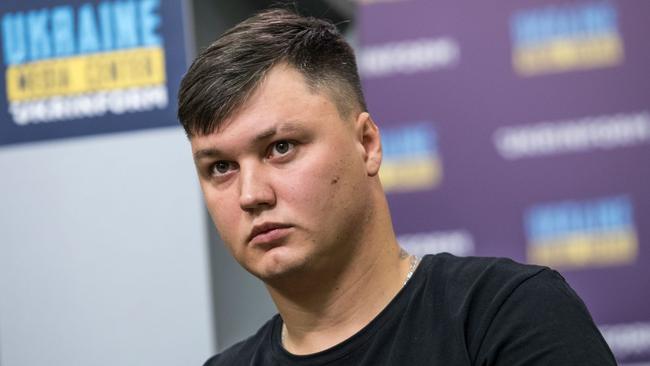
Once ensconced in his new home, an apartment in a Kyiv safe house, he was filmed in a documentary, “Downed Russian pilots.” The documentary was broadcast nationwide on Sunday, Sept. 3. “The film reveals for the first time the details of perhaps the most successful special operations … in the entire history of our country,” said one social-media promotional post.
After it aired, Russian anger at the betrayal spilt onto prime-time news shows. “We’ll find him. I don’t think he’ll live long enough to face trial,” said one intelligence officer interviewed on Russia’s News of the Week show.
Two weeks later, Kuzminov arrived to meet his handler in their rendezvous point, a downtown Kyiv park, confiding a worry now clouding his thoughts: Would the Russians catch him?
In Ukraine, he would be safe, his handler assured him. If he wanted, he could even fly in the Ukrainian air force.
He could also leave.
“We can’t keep you chained here in Ukraine,” one official said he told Kuzminov. “But we also need you to be aware of the risks to your safety.” He decided to try his luck in Spain. On his way out, Kyiv handed him a Ukrainian passport, with a dubious cover name, Ihor Shevchenko — a common first name matched to the surname of a founding father of Ukraine’s national identity, 19th century poet Taras Shevchenko. It would be the equivalent of the CIA handing a newly minted American a passport printed with the code name “John Washington.” Kuzminov opted for the Mediterranean town of Villajoyosa, population 36,000, including more than 800 registered residents from Russia. His home in exile was the ninth floor of a four-tower condominium cluster overlooking the beach, most of its tenants foreigners, the building manager said. A placard by the entrance extended a measure of confidence: “Facilities monitored by video cameras and security personnel.” In smaller print below read doorbell-ringing instructions, written in Spanish, English and Russian.
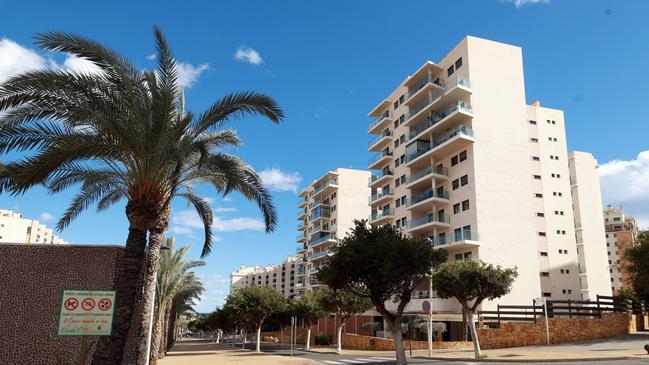
Along the street, Russian expatriates prayed at the nearby Orthodox Church and shopped for groceries at a store named Baltica. The coastline had a reputation for Russian organised crime. Three years earlier, Spanish police had arrested nearly two dozen mostly Russian businessmen in the area in what it called the bust of an East European mafia network laundering money into nightclubs and real estate on the Mediterranean coast.
The building’s newest resident started in quickly, renovating his unit, often dressed in construction attire as he escorted another worker in and out of the building. One day, he asked the condominium’s building manager where he could dump debris. His Spanish was decent, the manager thought.
Soon after, that manager was sweeping the parking lot when he heard screams, followed by the screech of tires pulling off. He ran and found Kuzminov’s body, staring up from the driveway, his mouth open.
“When I called the emergency phone number,” the manager said, “I already knew that the man was dead.”
The Wall Street Journal

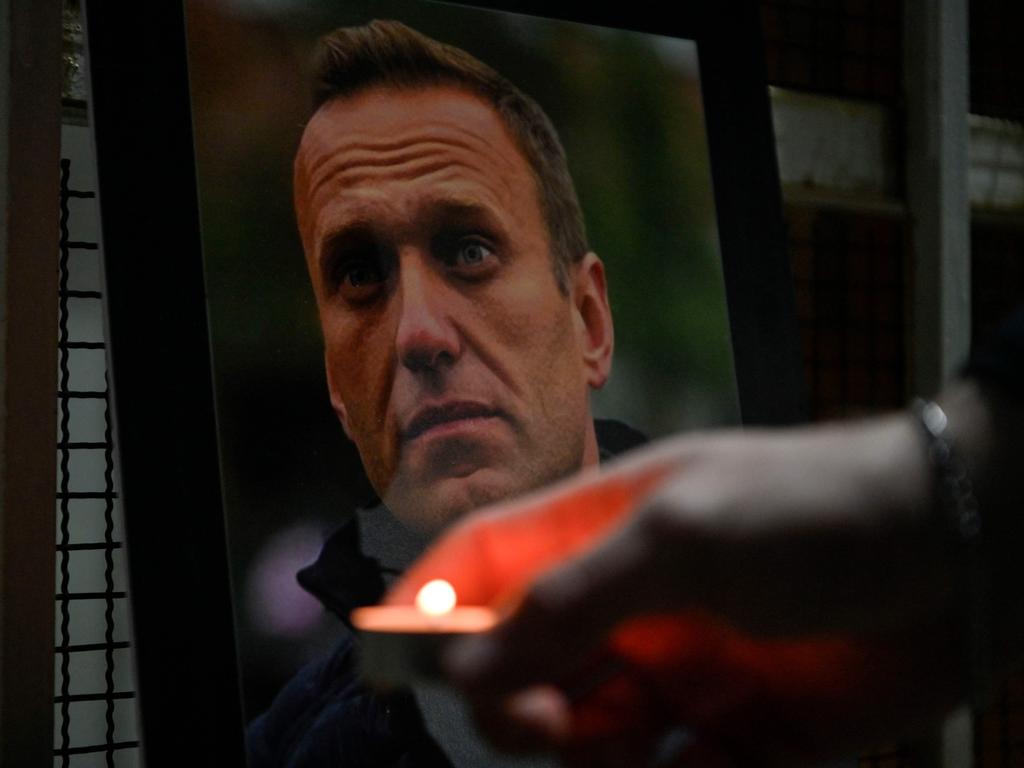


To join the conversation, please log in. Don't have an account? Register
Join the conversation, you are commenting as Logout